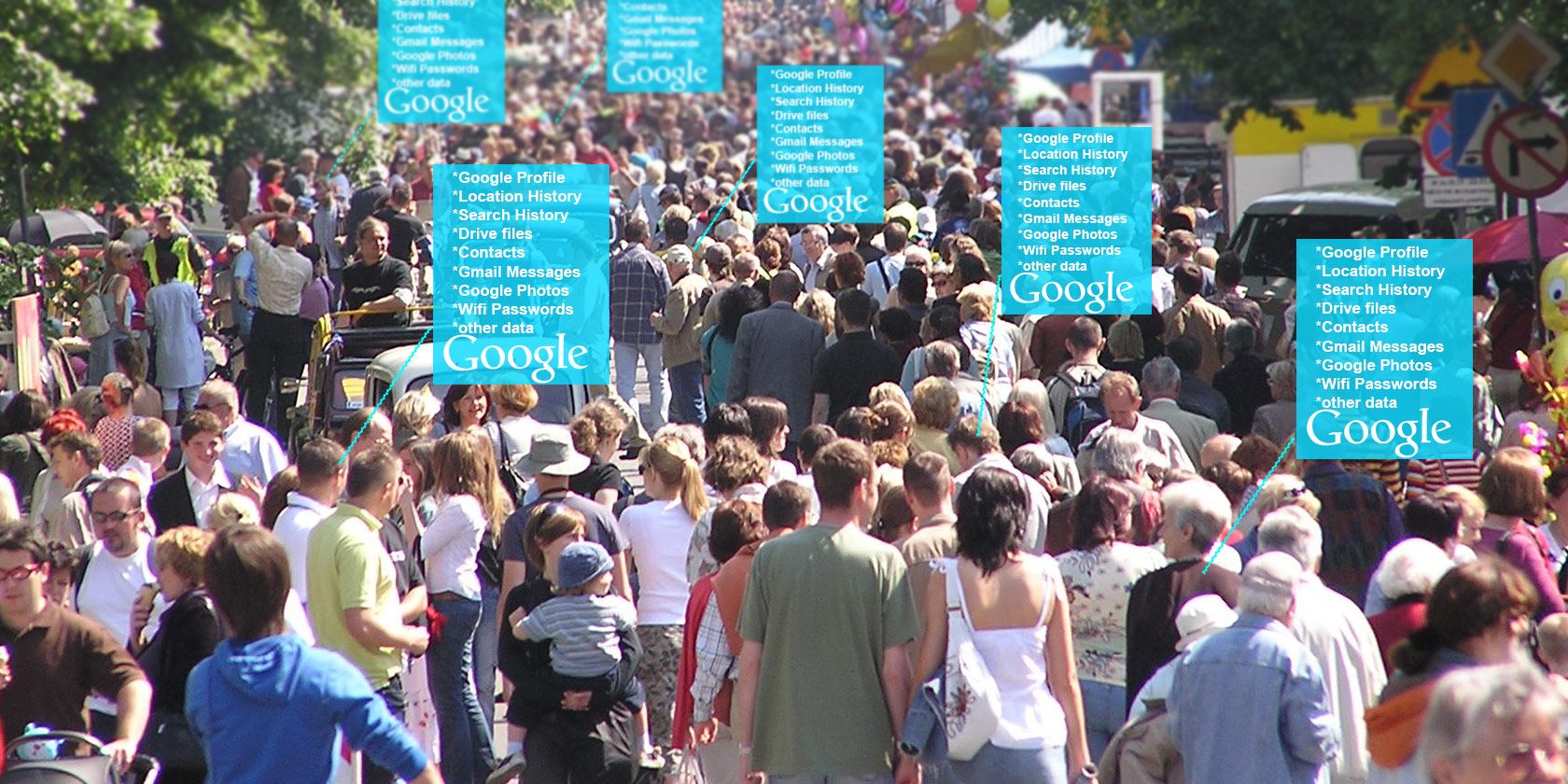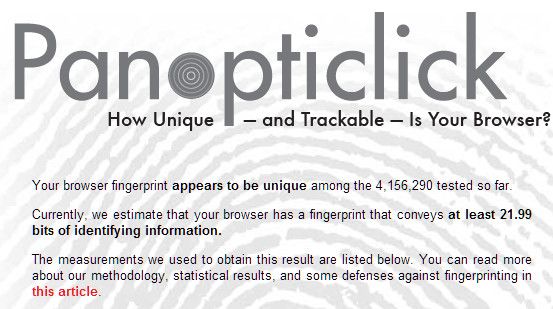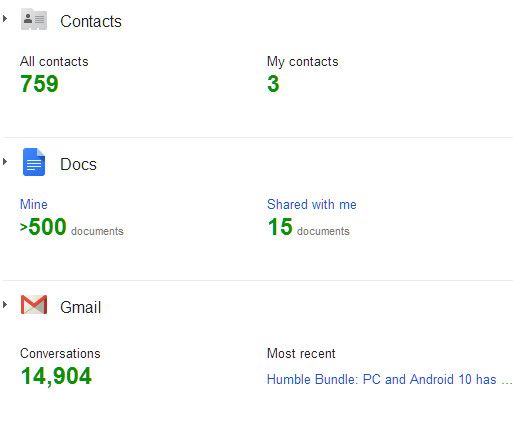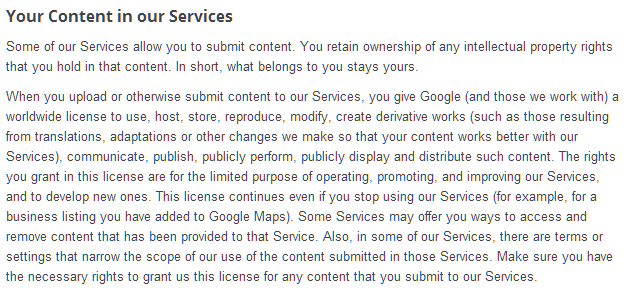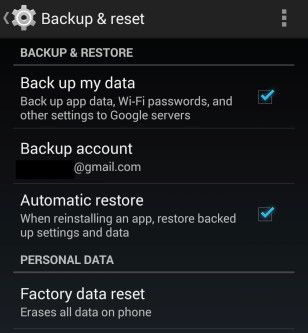Google is a technology giant that provides a huge variety of services, many of which are free. Gmail, Google Drive and Google Hangouts can be used without paying a dime. Instead, pay by providing information about yourself, which Google can use for advertising. Though it started in search, the lion's share of the company's profits come from ads.
You've likely noticed this already. Search for a new car and suddenly, as if by magic, ads from local car dealers begin to appear. But how much does Google really know about you, and should you be concerned? The answer may surprise you.
Your Internet Trail
Google's most obvious and transparent tracking can be found in Google Web History, which tracks your past searches on all devices where you're registered with your Google account. Web History is supposedly beneficial to users because it allows Google to tailor future search results to your preference based on your past history, but a log of your searches is also quite useful to marketers. And, if anyone manages to snoop on your account, it could become a privacy issue.
Less transparent, but equally common, is Google's history of the pages you visit, which occurs whether you're logged in to a Google account or not. This is accomplished through the use of tracking cookies as well as information derived from AdSense and Analytics. Google can learn what sites you frequent, in what order you visit them, how long you spend on them, and much more.
The profile built from this information isn't yours, in the sense that it's based on information like your I.P. address, monitor resolution and browser plugins instead of your name and address, but it still puts together a unique profile of your activities and preferences which is then used to display relevant ads. If you have a Google Profile you can view this information by going to Google Ad Settings, a page which also lets you opt-out of specific types of ads or manually change your preferences (if you feel like helping Google profile you). You can also use EFT's Panopticlick [No Longer Available]tool to see the information used to create your digital fingerprint.
YouTube is also an important part of the trail you leave behind. The world's most popular video site keeps track of your viewing history, your subscriptions and your searches to augment Google's understanding of you. All of this history is viewable in Google Dashboard – by you or anyone else with access to your account.
There's not much about your online activity that remains outside of Google's hands. Even supposedly private browsing modes, like Google's Chrome, don't entirely protect you. Only more advanced measures, like VPNs and the Tor network, have the potential to shield your privacy.
Google+ Your Info
While Google's tracking efforts are incredible, the advent of Facebook revealed there was an even easier way to grab user data; just as them. Facebook has encouraged hundreds of millions of people across the globe to give up information Google collects through complex algorithms and databases.
And so we have Google+. Your user profile is exactly that – a profile of you, which can be used to better target advertisements. Entering your date of birth, occupation, interests and location provides more data points for Google to feed into its calculations. The same is true of the contacts you make, the messages you post, and the photos you upload.
No Such Thing As Private Gmail
Of course, users of Google+ likely know what they're getting into. Users continue to sign up for Facebook, which has displayed ads for years, with no apparent qualms. There's no reason to expect Google+ to be different, and the information it collects isn't particularly insidious. In short, users don't expect social networks to be private affairs.
You may, however, be surprised to hear that your Gmail account is not cordoned off from Google's data collection. On the contrary, its introduction has provided the company with a wealth of information that'd otherwise be unobtainable. Google mines your inbox for data that might indicate your preferences. The company also can compare information found in your email with other publically available information to gain a better understanding of you.
For example, keen observers noticed that Google was using data collected via Gmail to spot users who were signed up with competing social networks. Once spotted, those users received a message suggesting they connect the competing social network's account with your Google account, which in turns gives Google access to data stored by the other social network.
This presumably includes Chat, as well, since it's covered by the same terms of service. Speaking of which, all of that chats that you've conducted through GTalk are saved in Gmail, a fact users often forget because Chat history is not displayed by Gmail's menu bar until the "more" tree is opened.
You Own Your Google Drive Files, But Google Can Still Read Them
Whether Google similarly mines documents in Google Drive is not clear. Presumably the same terms of service could be applied, given the company's unified privacy policy, and the techniques used to conduct such a search is unlikely to be much different from that used to mine Gmail. However, at this time Google has not confirmed or denied mining Drive data.
There was some drama over Drive's security because the company's terms of service provide Google the right to "use, host, store, reproduce, modify or create derivative works." However, the company's ToS also says that users "retain ownership of any intellectual property rights." In short, Google can't steal your content outright – but this legalese does provide the company wiggle room to read your data at will if it chooses to do so.
Android Is Watching You, Too
Much of your Internet trail can be tracked no matter what device you use. PC, tablet, smartphone – it doesn't matter much, particularly if you have a Google account which, if you're using an Android device, you almost certainly do. Your browsing activities can be tracked much as they are when you use a computer.
Android owners also open themselves up to location tracking, which occurs if you turn on location data when setting up your device or installing a new app. This obviously provides some very useful data that can indicate not only where you live but also your habits and the locals you frequently visit. You can view the information Google has on you with the Location History tool and you can even delete your history, if any, though it's not clear if doing so scrubs it from Google's internal database.
Another area of concern is Android's backup service. Though useful, the information stored by the service includes wireless networks, complete with passwords, and data from some third-party apps. All of this is stored on Google's servers, which means it could be obtained by hacking Google itself, by court order from a government agency, or by anyone who obtains access to your account and uses it to set up a new Google device.
Your Google Digital Shadow Is Complete
Taken as a whole, the information Google collects about users is shockingly complete. The company can mine your emails and Drive documents, track your browsing history, track the videos you watch on YouTube, obtain your WiFi passwords and much more.
None of this is meant to be insidious, of course. Google's interest is serving ads, and in this sense an accurate profile might be perceived as a boon; if you're going to see ads, they might as well be ones that interest you. The reveal of the NSA's PRISM program, however, has proven that data collection is always a privacy issue because there are organizations that can compel data from those who hold it, either through legal finagling or by force.
What did you find out when you visited Google Dashboard, and what do you think of the company's profile on you? Let us know in the comments.

